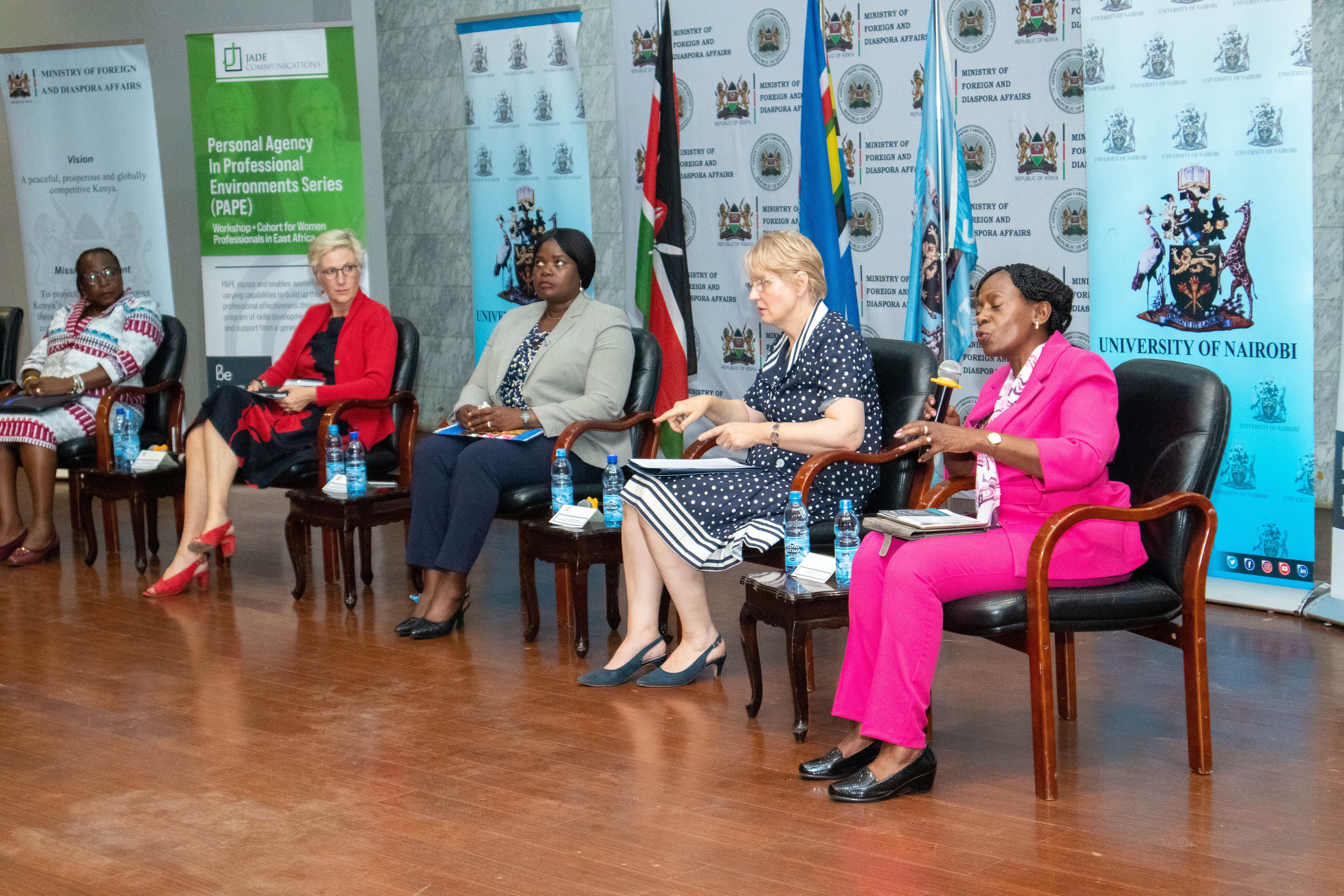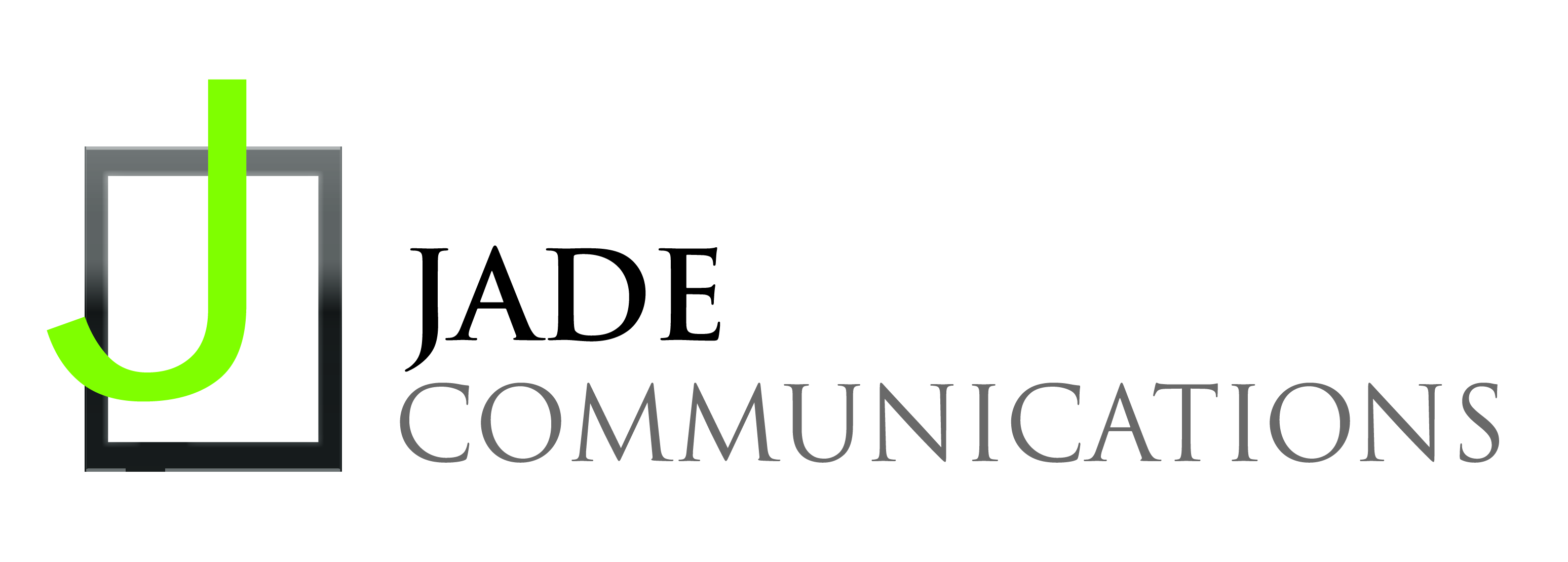
The challenge of effectively asserting agency in diplomatic and professional settings remains a common struggle for many women diplomats.
This was one of the themes discussed at the Women In Diplomacy Conference held at the University of Nairobi’s Chandaria Auditorium on February 20th.
Organized by the Ministry of Foreign and Diaspora Affairs Foreign Service Academy in collaboration with Jade Communications Centre for Applied Human Communication and the University of Nairobi’s Department of Diplomacy and International Studies, the conference highlighted the pivotal role women play in diplomacy. It also emphasized the importance of soft skills in navigating the intricate global landscape and international politics.
Dr Josephine Ojiambo, who has served as Kenya’s Ambassador and Deputy Permanent Representative at the UN and also Deputy Secretary General of the Commonwealth of Nations, is part of a team of retired and former ambassadors who are committed to mentoring and upskilling both young and senior diplomats.
However, she observed that often, at the end of every capacity building, female participants would approach her privately and ask pertinent soft skill questions, for example:
“I have another question: apart from the economic diplomacy, how can I build trust when deployed? Gain credibility? What do I do with my spouse and children? How can I continue as a woman professional after this course?”
These questions and a lack of an official forum to respond to them exposed the glaring gap and the need to build these soft skills to complement the other components of their training.
Personal agency in professional environments
To bridge this gap, Dr. Ojiambo is part of the Personal Agency in Professional Environments (PAPE) Series. In collaboration with Jade Communications Centre For Applied Human Communications, this program aims to empower women of varying capabilities by focusing on individual strengths and needs and fostering professional effectiveness through skill development, practice, and community support.
Plans are underway to collaborate with the University of Nairobi and the Foreign Service Academy to customize the program to address thematic areas relevant to different diplomatic positions and cadres.
Ambassador Ojiambo said, among other components, that the training would enable women diplomats to share experiences, close gaps and be able to read the room, be impactful and transparent about their goals, and correctly judge the happenings in their environment and how to be persuasive and influential.
In addition, the training would also create a supportive community for women diplomats at all levels, fostering resourcefulness and resilience to drive impactful diplomatic efforts.
Collaborating with institutions
In follow up to the half-day conference, she said, the next steps include dialogues with the Ministry of Foreign Affairs Foreign Services Academy, the University of Nairobi Department of Diplomacy and International Affairs and interested donor agencies on how to collaborate to support the training for women diplomats in building their personal agency
Ambassador Paul Ndung’u, Acting Director-General of the Foreign Service Academy, affirmed that the Academy, charged with training and refining Kenya’s ambassadors, is committed to empowering female diplomats to maximize their potential in representing Kenya’s and global interests.
He emphasized that female diplomats were just as effective in diplomacy as their male counterparts and praised women’s innate strengths in negotiation, networking, outreach, and bridge-building.
Ambassador Prof. Maria Nzomo, Professor Emeritus of International Relations, Diplomacy & Governance, and former Director of the Institute of Diplomacy & International Studies, University of Nairobi, underscored the importance of personal agency in navigating diplomatic and professional environments.
She pointed out two hindrances; one is that some people might not be aware of their agency, which hinders them from exploiting their agency well. Others may be aware but encounter barriers in their circumstances or contexts that hinder them from using their agency.
She called attention to the need to address structural barriers and focus conversations around solutions. Urging for more research into research into best practices in empowering and affirming women diplomats working in Africa, she implored the need for everyone to collaborate to resolve these problems.
In conclusion, the call to action resonates with collective efforts to support women diplomats in embracing their agency, driving positive change, and finding solutions together.
“We all have to find space to embrace each other and find the solutions together.”

